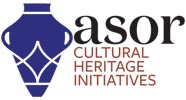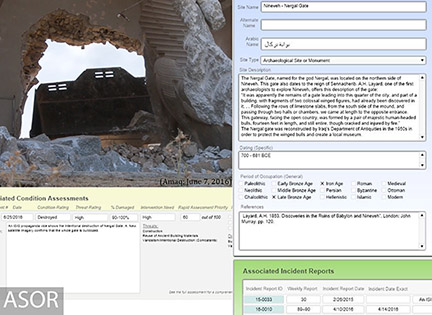The ASOR CHI inventory includes thousands of archaeological sites and monuments, from prehistoric cave sites and small mounds representing the world’s earliest settled farming communities to the enormous mounded complexes of humanity’s earliest known cities such as Ugarit, Ebla, Mari, Aleppo, and Nimrud. The inventory contains an impressive array of monumental urban centers and monuments of the Hellenistic, Roman, Byzantine, and Islamic eras, including Palmyra, Hatra, Mosul, Krak des Chevalier, and Damascus as well as myriad other sites that await scientific study. Religious sites and monuments comprise the second largest part of the inventory and include ancient rock carvings and ziggurats from remote antiquity to mosques, shrines, synagogues, temples, churches, and cemeteries that span the periods from the birth of many major religions to the modern era. We have also inventoried secular sites and monuments — for example, historic government buildings, sporting centers, water wheels, parks, and statues — along with the administrative infrastructure and cultural repositories that form the core of the region’s educational and cultural heritage infrastructures, including a wealth of museums, collections, libraries, and archives. While our inventory entries generally document a single site or monument, we have also adopted a multiscalar approach that incorporates historic districts, neighborhoods, villages, and cities.


